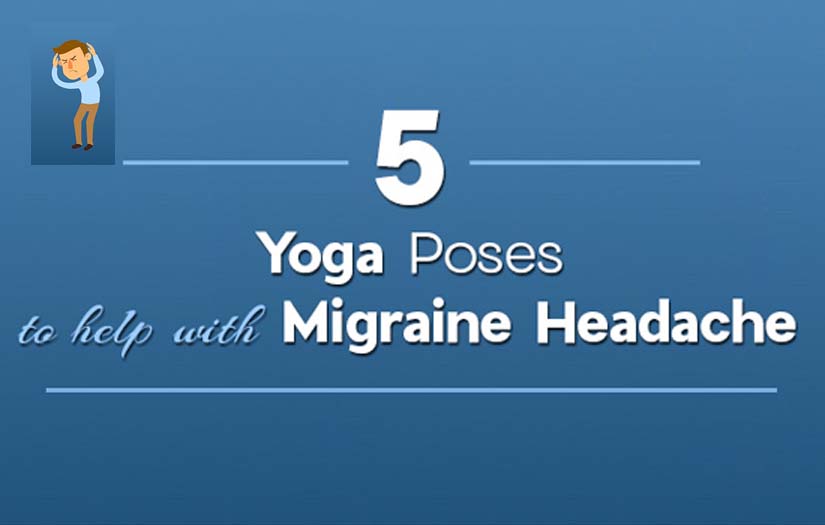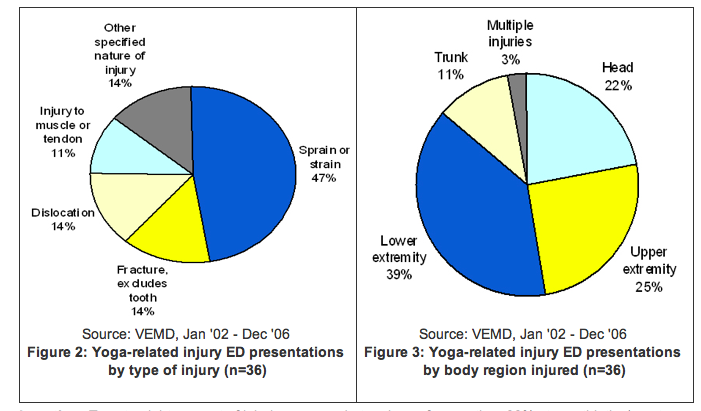
There are many options for yoga poses to help low back pain. Some are quite easy, others require more effort. I will be highlighting some of the most successful ones in this article. A good starting point is Child's Pose. Then, lower your knees to the mat and bend your elbows so your wrists are bent, and turn your feet slightly in and out. Press your hands together, and then stretch your arms out sideways. Keep your hips turned away from the floor and your head hanging freely.
The first yoga pose for low back pain is the forward bend. Forward bend helps to stretch your hips and improve your range of motion. This exercise requires that you lie down on the floor with your feet on the ground. You can also use a chair to do this pose. Your spine will twist while you stretch your back and larger muscles. This is a great yoga pose to relieve low-back pain.

The next yoga pose for low back pain involves a position known as the wall. This pose allows for gentle traction on your spine, while drawing attention towards the middle of your body. This is especially useful for those with chronic low back discomfort as it can help them regain mobility in their hips and flexibility. This stretch can be deepened by using pillows or blocks. You can extend your arms to the wall, if you align your head and neck with the spine.
The next yoga pose for low back pain involves raising the left leg to the left side and then bending your elbows. Lift your right elbow toward your chest. Then support your lower spine with the left side of your left leg by raising your right arm off the floor. You can hold this pose for between 20-30 seconds. This exercise can be repeated four to five times. This will strengthen your lower back.
Sphinx Pose is a great yoga pose for low back pain. It strengthens the spine, hamstrings, as well as creating a relaxing sensation. Sphinx is similar in shape to Locust Pose. This pose has an extended spine, which is great for stress reduction and hip opening. Sphinx has a relaxing effect and can also be used for low back problems.

Another excellent pose to reduce low back pain is child's pose. It is a great way to relax and prepare your lower back for rest. You will start in a tabletop pose, with your right foot pointed forward and your right hand on your hip. Your tailbone will relax and stretch downwards while you do the upward dog. The downward dog pose can be used to help calm your mind after you've completed an upward dog.
FAQ
Why mental health is important?
Play, work, learning, and love are all important. Mental health refers to our overall wellbeing. This includes all the factors that can impact our mental, physical, emotional, spiritual, and social well-being every day. There are many methods to care for yourself physically, mentally, emotionally and spiritually. You don’t have to do it all. Just get started!
The first step towards improving your mental health is understanding where you stand now. This quiz will help you determine if you are doing enough to improve your mental health. You might consider changing your lifestyle if you have a low score.
Congratulations! Take a look at the specific steps you can take to maintain and improve mental health.
-
Get enough sleep Get enough sleep to keep your brain alert and stimulated. The American Academy of Pediatrics (AAP), recommends that children get 7 to 8 hours of sleep per night.
-
Exercise Regularly. Exercise releases endorphins, which make you happier and less likely stress. Try to do 30 minutes of exercise five days a week.
What is the importance of mental health?
Everyone needs mental health. Mental health is vital for anyone. So, it is essential to maintain a healthy mind.
Our bodies can start to feel stressed if we don't feel well. This could cause problems in the body such as backaches, stomachaches, headaches and stomach pains. We must take care of ourselves to keep our minds and bodies balanced.
What should I do if I am experiencing mental health issues?
It is vital to seek support if you are experiencing any mental health problems. Perhaps you've been through trauma or suffered abuse in the past. It is possible that your thoughts about yourself have been affected by this.
You may also be suffering from an eating disorder, addiction, or another type of mental illness. These types of disorders can cause severe damage to your life.
You shouldn't try to deal with them on your own. Instead, talk to someone who can help you. A professional therapist will be able to provide you with the support and guidance that you need in order to overcome these problems.
How can you improve your mental or emotional health?
-
Exercise - It improves brain function and raises energy levels.
-
Sleep – A lot of sleep is good for stress and anxiety.
-
Nutrition - Healthy eating such as fruits, vegetables and meats will keep you healthy and energized.
-
Meditation - Meditation reduces anxiety and stress.
-
Socialization - Spending time in the company of friends and family keeps us happy.
What do psychologists have to say about mental illness?
Psychologists believe that mental wellness is an essential component of human development. Psychologists believe that mental well-being is more than just being healthy.
There are many opinions among psychologists regarding mental health. Some psychologists feel that mental health doesn't matter because there are so few people with mental illnesses. Others believe that mental health and functioning properly are essential.
How can I prevent mental health issues?
Preventing problems with mental health is much easier said than done. But, here are some tips to keep in mind:
-
Don't drink alcohol. The effects of alcohol on moods can lead to depression.
-
Avoid using drugs. Avoid using drugs.
-
Get enough sleep. Sleep deprivation can make you feel anxious and depressed.
-
Exercise regularly. Exercise can release endorphins, which make you happy.
-
Choose healthy foods. Eaten junk food can make one feel slow and unmotivated.
-
Spend time with your loved ones. Spending time with those you love can improve your mood.
-
Have fun. Enjoy your life and be open to new experiences.
-
Retire from social media. Social media sites can make you feel lonely and isolated.
-
Be kind to your self. Treat yourself nicely, even if you aren't feeling great.
-
Ask for help. Ask for help if you are having difficulty coping. Talking with a friend or family member is a great way to get help.
-
Remember, it's OK to cry. Crying helps release tension and stress. It doesn’t mean something bad happened.
-
Keep busy. Do something you enjoy.
-
Make sure you have good hygiene. Bad hygiene can make it difficult to feel attractive and clean.
-
Keep connected. Stay positive by connecting to others.
-
Learn how you can relax. Meditation and yoga can be helpful in reducing stress.
-
Find meaning in what your do. Finding purpose in your work and hobbies can give you a sense of fulfillment.
-
Be present in the moment. When you focus on the present moment, you won't worry so much about the future.
-
Set goals. Goal setting can help you be motivated to reach your goals.
-
Do something kind for yourself. Doing something nice for yourself can boost your self-esteem.
-
Practice gratitude. Gratitude helps you to appreciate all of the good things about your life.
-
Volunteer. Volunteering is a great way to have fun and make a positive impact in the world.
-
Give back. Giving back to others can make it feel fulfilling.
-
Watch out for warning signs. If you notice any changes in your behavior, don't hesitate to reach out for help.
What is the impact of mental health on our daily lives?
All people are affected by mental illness at some point in their lives. Mental illness is not something that people who are suffering from it don't seek treatment. If you feel like something is wrong, talk to someone about it. There are many treatments for depression, anxiety and stress.
Statistics
- Similarly, while there is some agreement about the boundaries of typical mental disorders 2, there is likely less agreement about those for positive mental health. (ncbi.nlm.nih.gov)
- According to the National Alliance of Mental Illness (NAMI), one in five Americans experiences mental health issues which translates to more than 40 million adults a year. (doctorondemand.com)
- Neuropsychiatric diseases are the leading cause of death and disability in the U.S., accounting for 18.7 percent of all years of potential lifespan loss and premature mortality.
- In any given year, an estimated 18.1% (43.6 million) of U.S. adults ages 18 years or older suffered from any mental illness, and 4.2% (9.8 million) (healthypeople.gov)
- Appropriate nutrition and exercise are likely among the most efficacious and cost-effective positive mental health interventions. (ncbi.nlm.nih.gov)
External Links
How To
How to Handle Stress
Stress is normal. We need to learn how to relieve stress. Stress can affect all aspects of your lives. Stress can lead to physical problems like headaches, neck pain and back pain, as well as stomach aches, constipation. You may even develop ulcers if you're under chronic stress.
There are many things you can do to reduce stress. Exercise can help you release endorphins which makes you feel happy, relaxed, calm, and peaceful. Meditation helps reduce stress by slowing down, and taking deep breathes. Yoga is another great way to help reduce stress and improve overall health.
Stress management is best done by learning how to control it and then eliminating it entirely. Ask someone who knows what to do if you are unsure.